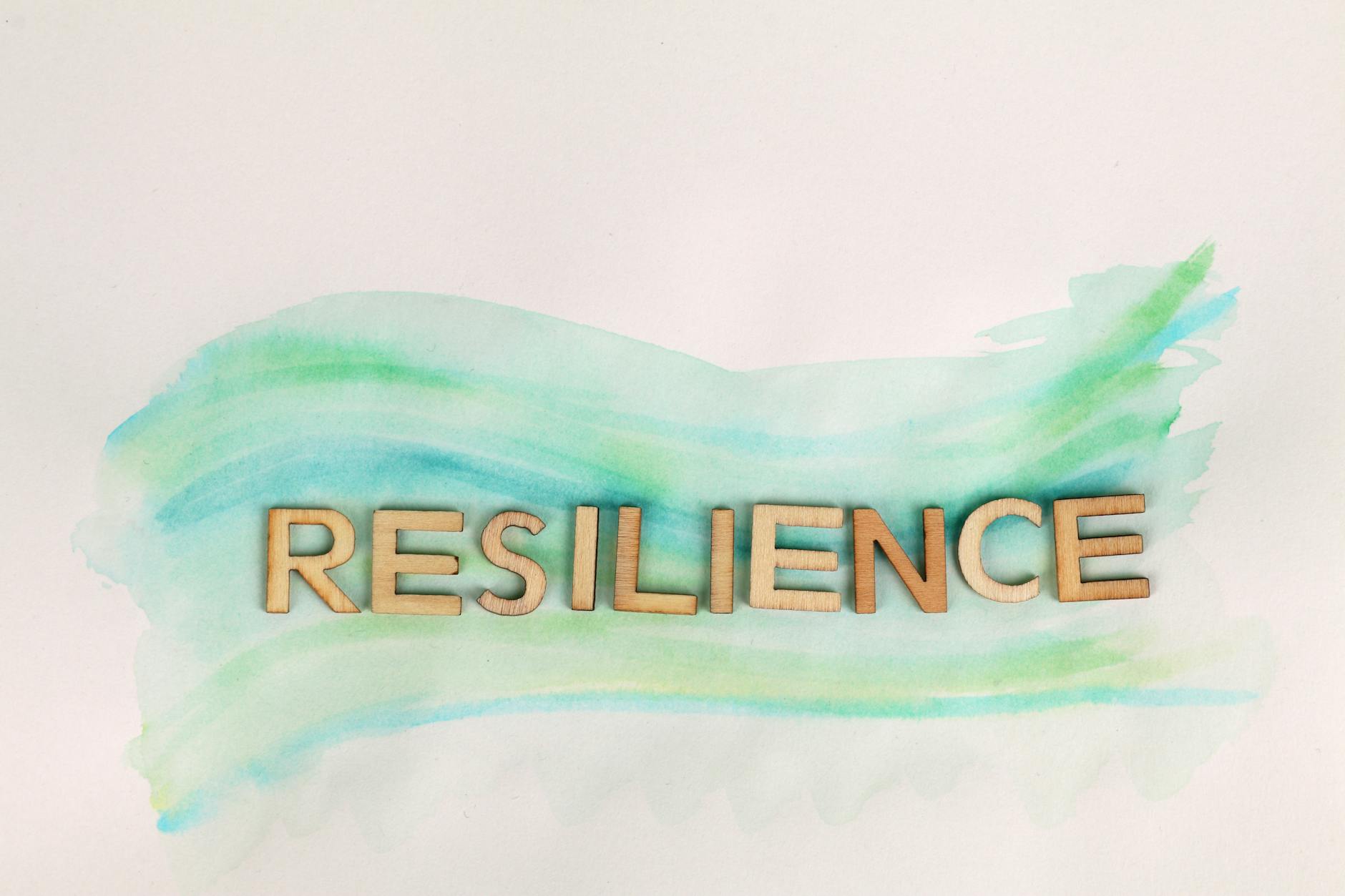Breaking free from a victim mentality and mindset is a transformative journey that empowers individuals to take control of their lives. It involves breaking free from limiting beliefs and self-sabotaging behaviors that keep you stuck in a cycle of self-sabotage and negativity. In this blog post, we delve into practical steps to help you overcome a victim mindset lack self-confidence, and embrace a mindset of empowerment and resilience.
Identifying the signs of someone with a victim mindset is crucial in initiating change. By recognizing patterns of blame, self-pity, and helplessness, you can begin to shift your perspective towards one of ownership and accountability. Acknowledging the impact of someone with a victim mindset is the first step towards breaking free from its grip.
Taking actionable steps is key to breaking the cycle of the victimhood mindset. We provide five practical strategies that can help you reclaim your power and cultivate a more positive outlook on life. From practicing gratitude and developing self-efficacy and compassion to taking responsibility, setting boundaries, and reframing negative thoughts, these steps are designed to guide you towards a mindset shift.
By implementing these practical steps, you can pave the way for a more fulfilling and empowered life. Breaking free from a victim mindset is a journey of self-discovery and personal growth, and it starts with a willingness to challenge your beliefs and embrace change. Join us as we explore the transformative power of overcoming a victim mindset in five practical steps.
Understanding the Victim Mindset
Understanding the Victim Mindset is crucial in breaking free from victim syndrome and its constraints. Let's delve into the definition and characteristics of a Victim Mindset, explore its impact on victim behavior and on mental health, and learn how to recognize signs of this mindset within your family members and yourself.
Definition and Characteristics of a Victim Mindset
A Victim Mindset is a perspective where individuals see the world and themselves as powerless and at the mercy of external circumstances. Characteristics of the victim complex include an inclination to feel guilty and to blame the world and others for their misfortunes ongoing emotional pain, feeling like a perpetual target of unfair treatment, and a reluctance to take responsibility for their own actions.
Impact of a Victim Mindset on Mental Health
Having a Victim Mindset can take a toll on mental health. Constant feelings of being a victim can lead victims to increased stress, anxiety, and feelings of pain and helplessness. It is a negative attitude and victim role that may hinder personal growth and prevent individuals from seeking solutions to improve their circumstances.

Photo by Mikhail Nilov
Recognizing Signs of a Victim Mindset in Yourself
Recognizing the signs of a Victim Mindset within yourself is the first step towards overcoming it. These signs of victim mentality may include constant self-pity, blaming yourself and others for the fault in your situation, feeling like a victim of circumstances beyond your control, and a belief that you are always on the losing or wrong end of bad things.
Understanding these signs and acknowledging their presence in your mindset is essential in taking proactive steps towards breaking free from the Victim Mindset.
The Power of Self-Awareness
Self-awareness is the cornerstone of personal growth and breaking free from a victim mindset. By understanding one's thoughts, emotions, and behaviors, individuals gain valuable insights into their patterns and triggers. This awareness opens the door to positive change and empowers individuals to take control of their lives.
Importance of Self-Reflection in Overcoming a Victim Mindset
Self-reflection is a powerful tool that allows individuals to pause and examine their thoughts and feelings without judgment. It helps in developing their self-esteem and their self-efficacy, by recognizing negative thought patterns that contribute to a victim mentality. Through self-reflection, individuals can challenge these beliefs, reframe their mindset, and cultivate a more empowering outlook.

Photo by Julia M Cameron
Practicing Mindfulness to Identify Victim Mentality Triggers
Mindfulness involves being fully present in the moment and observing thoughts and feelings without attachment. By practicing mindfulness, individuals can identify triggers and negative situations that lead to a " play the victim' mentality. This heightened awareness enables them to choose how to respond to challenging situations, breaking free from reactive patterns and fostering a sense of self-confidence and empowerment.

Photo by Pixabay
Taking Control: Strategies to Break Free
Cultivating a Growth Mindset
Embracing a growth mindset is fundamental to breaking free from a victim mentality. It involves believing in your ability to develop and improve through dedication and hard work. Encourage yourself to view challenges as opportunities for growth and learning. By fostering a growth mindset, you empower yourself to overcome obstacles and seize control of your own life again.

Photo by Akil Mazumder
Setting Personal Boundaries and Assertiveness
Establishing clear personal boundaries is essential for reclaiming your power and autonomy. Learn to say no to situations or to other people's problems that compromise your well-being. Practice assertiveness by expressing your thoughts and feelings honestly and respectfully. By setting boundaries and being assertive, you cultivate self-respect and reinforce your ability to shape your own narrative.
Challenging Negative Thought Patterns
Negative thoughts and negative thinking patterns can entrap you in a victim mindset. Challenge these harmful thoughts by examining their validity and replacing them with positive affirmations. Develop a habit of self-compassion and constructive self-talk. By actively combating negative emotions and thought patterns, you dismantle self-limiting beliefs and pave the way for a more empowering mindset.
Seeking Support from Mentors or Therapists
Seeking guidance from mentors or therapists can provide valuable insights and perspectives to navigate away from a victim mindset. Mentors offer wisdom and encouragement to people with a victim within, guiding you towards self-empowerment and growth. Therapists provide professional support to address underlying issues and develop coping strategies. By seeking support, you build a strong foundation for breaking free from limiting beliefs and embracing a healthier mindset.
Practical Steps for Transformation
Embarking on a journey toward breaking free from a victim mindset requires practical steps that empower you to take charge of your thoughts and actions. By following these five transformative steps, for example, you can cultivate a mindset that fosters resilience and growth.
Step 1: Acknowledge Your Patterns and Triggers
To initiate change, it is essential to acknowledge the recurring patterns of learned behavior and triggers that contribute to your victim mentality. Reflect on situations that evoke feelings of powerlessness, feeling trapped, learned helplessness, or self-pity. By identifying these triggers, you can proactively address them and reframe your response.
Step 2: Practice Positive Affirmations and Visualization
Harness the power of positive affirmations and visualization to reprogram your mindset. Start your day by affirming your worth and capabilities. Visualize yourself overcoming challenges and achieving your goals. This practice can instill confidence and optimism, gradually shifting your perspective.
Step 3: Engage in Self-Care Activities
Self-care plays a crucial role in nurturing a positive mindset. Dedicate time to activities that replenish your energy and uplift your spirits. Whether it's practicing mindfulness, exercising, or indulging in a hobby, prioritize self-care to cultivate a strong sense of well-being and self-compassion.
Step 4: Embrace Challenges as Opportunities for Growth
View challenges as opportunities for personal growth and development that not everyone can. Instead of succumbing to a victim mindset in the face of adversity, embrace challenges as catalysts for progress and personal responsibility. Each obstacle presents a chance to learn, adapt, and emerge stronger than before.
Step 5: Celebrate Your Progress and Successes
Acknowledge and celebrate your progress, no matter how small it may seem. Recognize the efforts you put into changing your mindset, taking risks, and overcoming obstacles. By celebrating your wins, you reinforce positive behaviors and cultivate a mindset focused on growth and resilience.

Photo by cottonbro studio
Embracing Empowerment and Resilience
Embracing empowerment and resilience is pivotal to breaking free from a victim mindset. By cultivating a mindset of strength and self-determination, individuals can navigate challenges with a newfound sense of power. Let's explore two key aspects of this journey.
The Role of Gratitude in Shifting Mindset
Gratitude acts as a powerful catalyst in shifting one's mindset from a place of lack to abundance. When individuals actively practice gratitude, they train their minds to focus on the positive aspects of their lives rather than dwelling on shortcomings. It acts as a beacon of light in moments of darkness, reminding individuals of the goodness that surrounds them even in challenging times. Embracing gratitude instills a sense of appreciation for the present moment and the possibilities that lie ahead.

Photo by George Dolgikh
Embracing Resilience Through Adversity
Resilience is the cornerstone of overcoming obstacles and setbacks. It is the ability to bounce back from adversity, stronger and more determined than before. When faced with challenges, individuals who embrace resilience view these hurdles as opportunities for growth and learning. Resilience empowers individuals to adapt to difficult situations, persevere in the face of adversity, and emerge more robust on the other side. Embracing resilience through adversity fosters inner strength and fortitude.

Photo by Ann H
Conclusion
After implementing the five practical steps to overcome a victim mindset, you're now equipped with valuable tools to transform your mindset and take charge of your life. Remember, breaking free from a victim mentality is a long period continuous journey that requires self-awareness, perseverance, and practice. By following these steps, you can empower yourself to conquer challenges, build resilience, accept responsibility, and embrace a mindset of growth, gratitude practice, and positivity.
Embrace Empowerment
Embracing empowerment means recognizing your inner strength and abilities. Take responsibility and ownership of your thoughts, actions, and emotions. Believe in your capacity to influence your circumstances and create positive outcomes. Empowerment starts from within and radiates outward, shaping your reality and empowering others around you.
Cultivate Resilience
Resilience is a personality trait essential for navigating life's ups and downs. Cultivate resilience in tough situations, develop coping strategies, seek support from loved ones, and stay adaptable in the face of adversity. Embrace setbacks as learning opportunities, and believe in your ability to bounce back stronger than before. Remember, resilience is a muscle that strengthens with each challenge you overcome.
Practice Self-Compassion
Self-compassion involves treating yourself with kindness, understanding, and acceptance, especially during difficult times. Be gentle with yourself, acknowledge your imperfections, and practice self-care to nurture your physical, emotional, and mental well-being. By cultivating self-compassion, you build a solid foundation of self-love and inner peace.
Foster Growth Mindset
A growth mindset is the belief that your abilities and intelligence can be developed through dedication and hard work. Embrace challenges as opportunities for growth, celebrate your progress, and learn from failures. Cultivate a curiosity for learning and a willingness to step out of your comfort zone. With a growth mindset, you'll continuously evolve and expand your potential.
Cultivate Gratitude
Gratitude is a powerful tool for shifting your perspective from lack to abundance. Cultivate gratitude by acknowledging the blessings in your life, big or small. Take time to reflect on moments of joy, kindness, and success. Practice gratitude daily through journaling, mindfulness, or acts of kindness. By fostering gratitude, you invite positivity and contentment into your life.
In conclusion, breaking free from a victim mindset is a transformative journey that requires commitment, self-reflection, and perseverance. By implementing these five practical steps, you can rewrite your past trauma from your narrative, reclaim your power, and embrace a mindset of resilience, growth, and gratitude. Remember, you have the strength and agency to shape your story and create a life filled with purpose and fulfillment.








